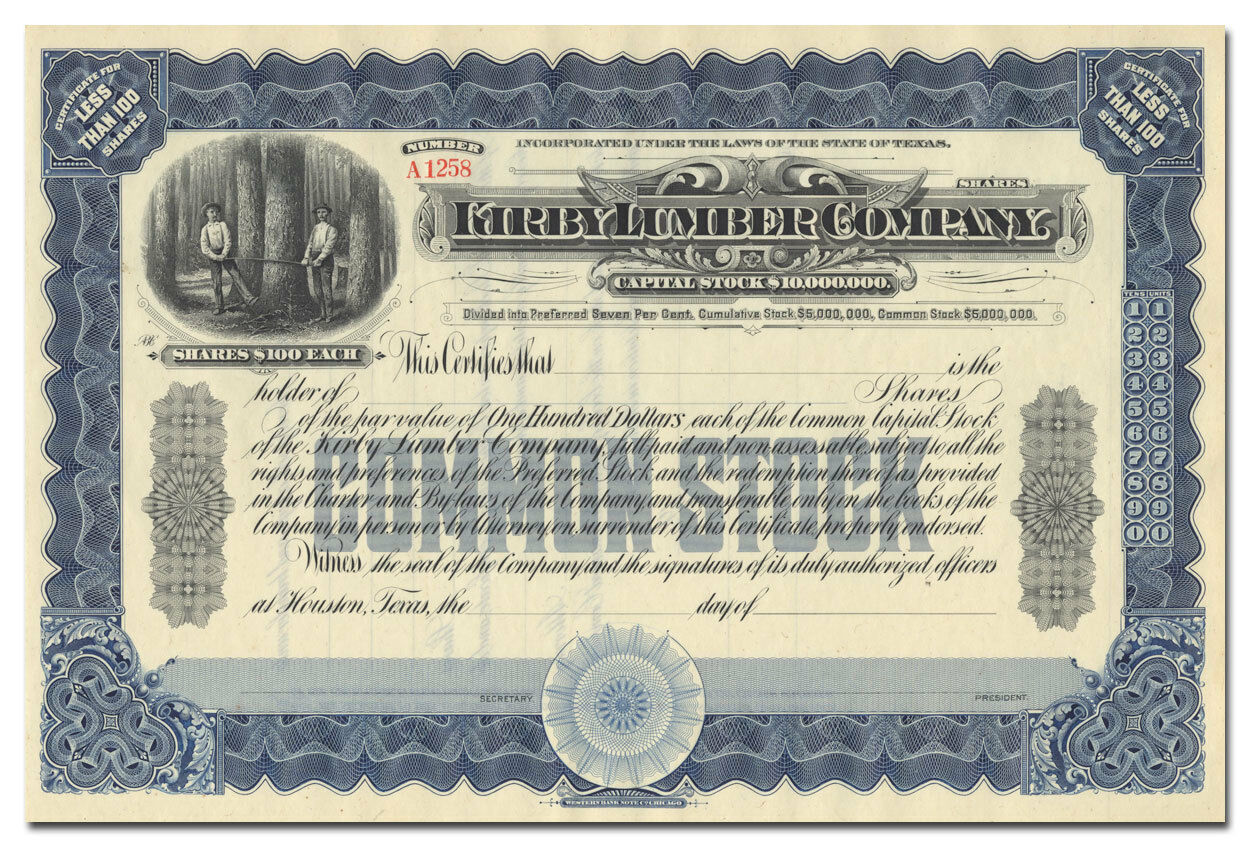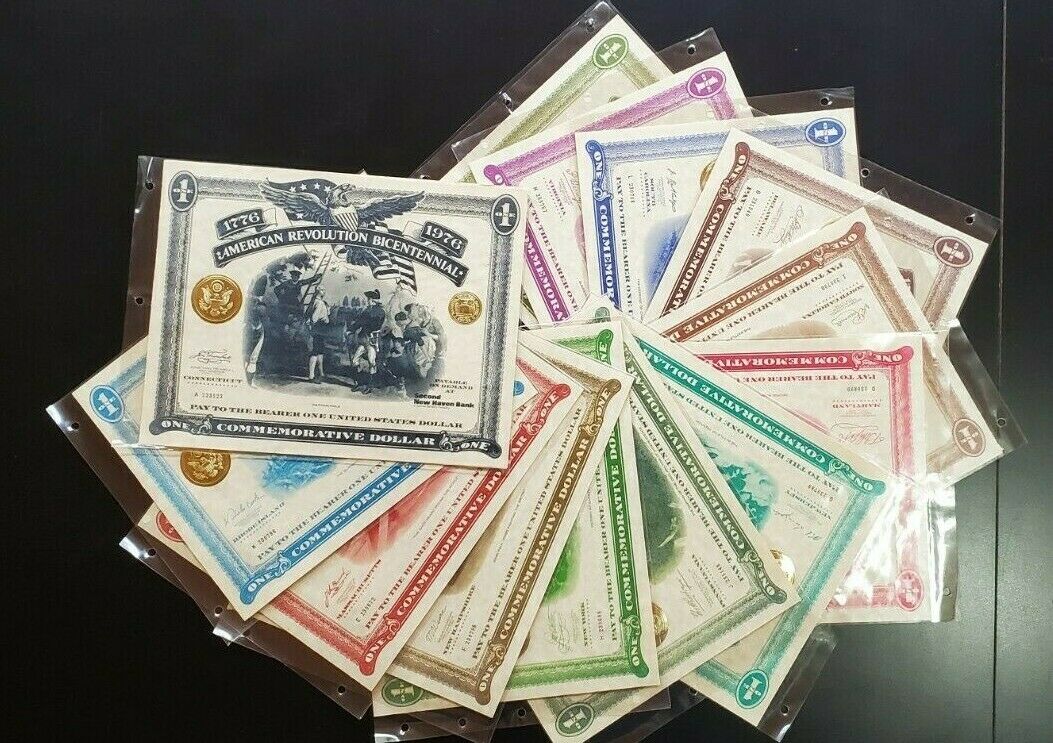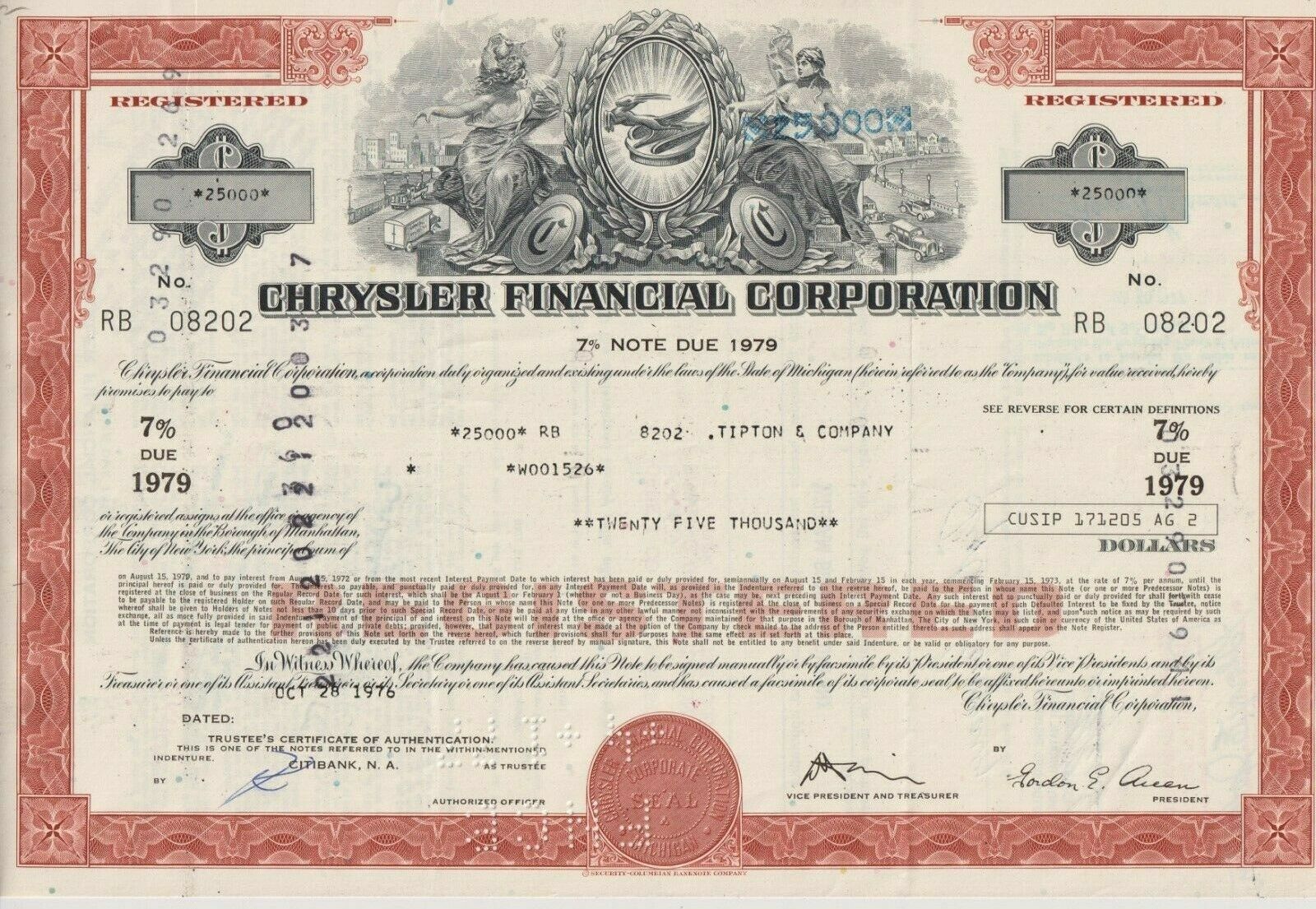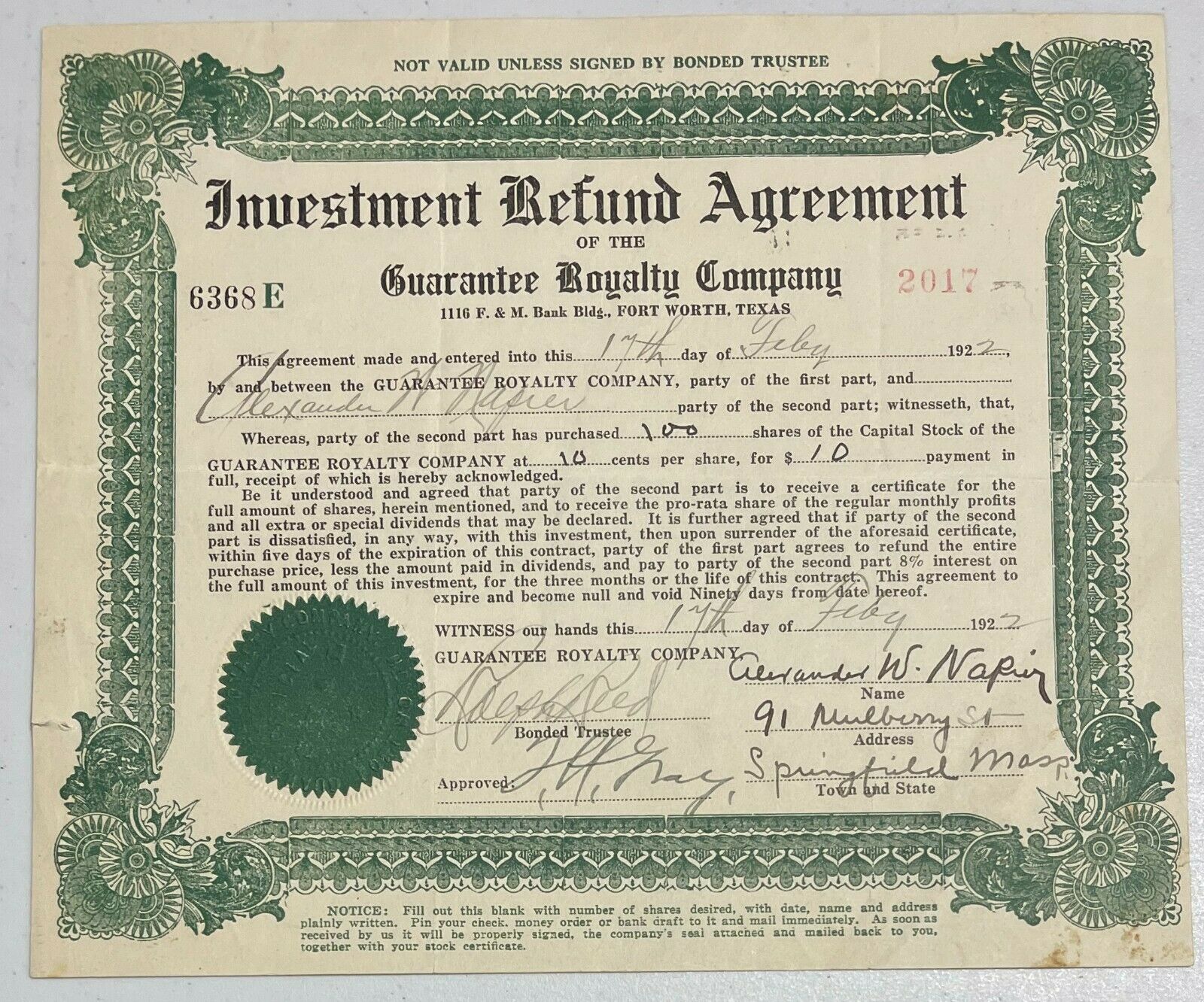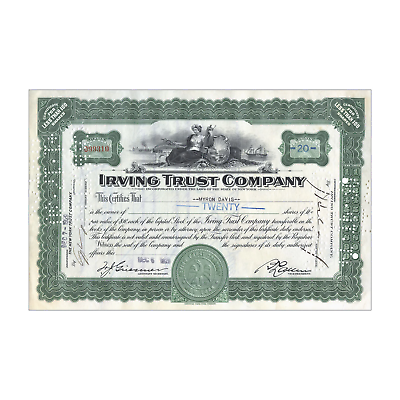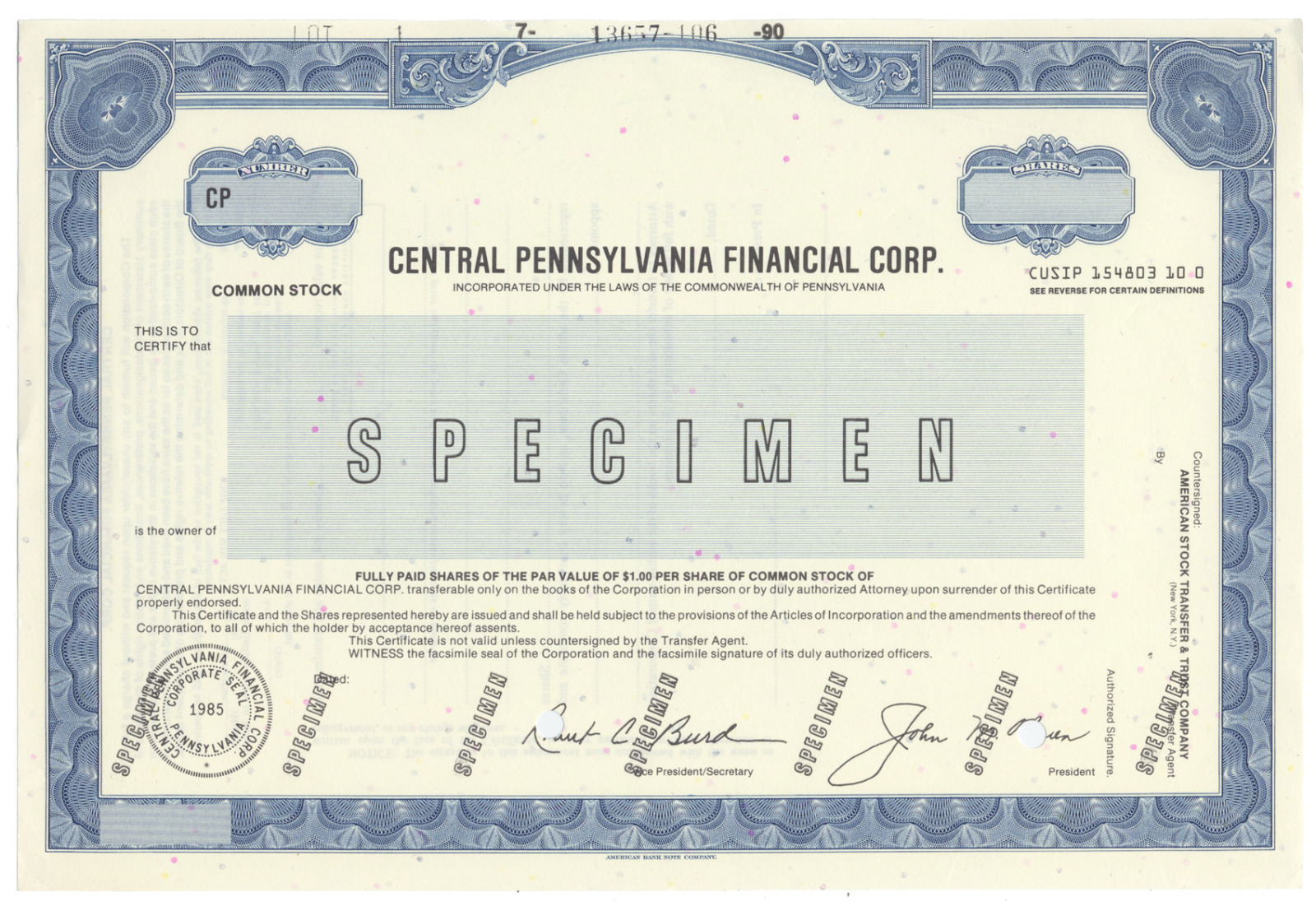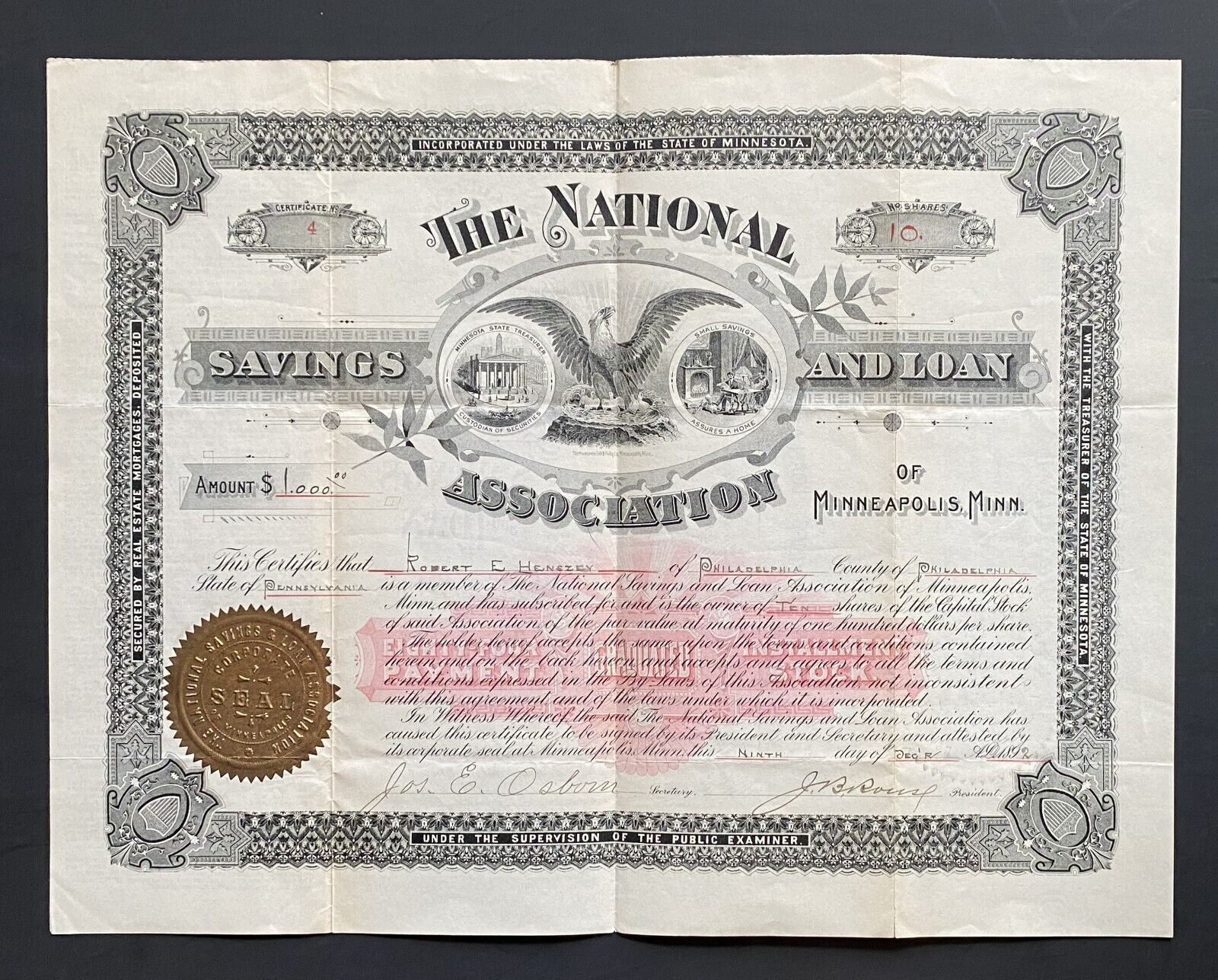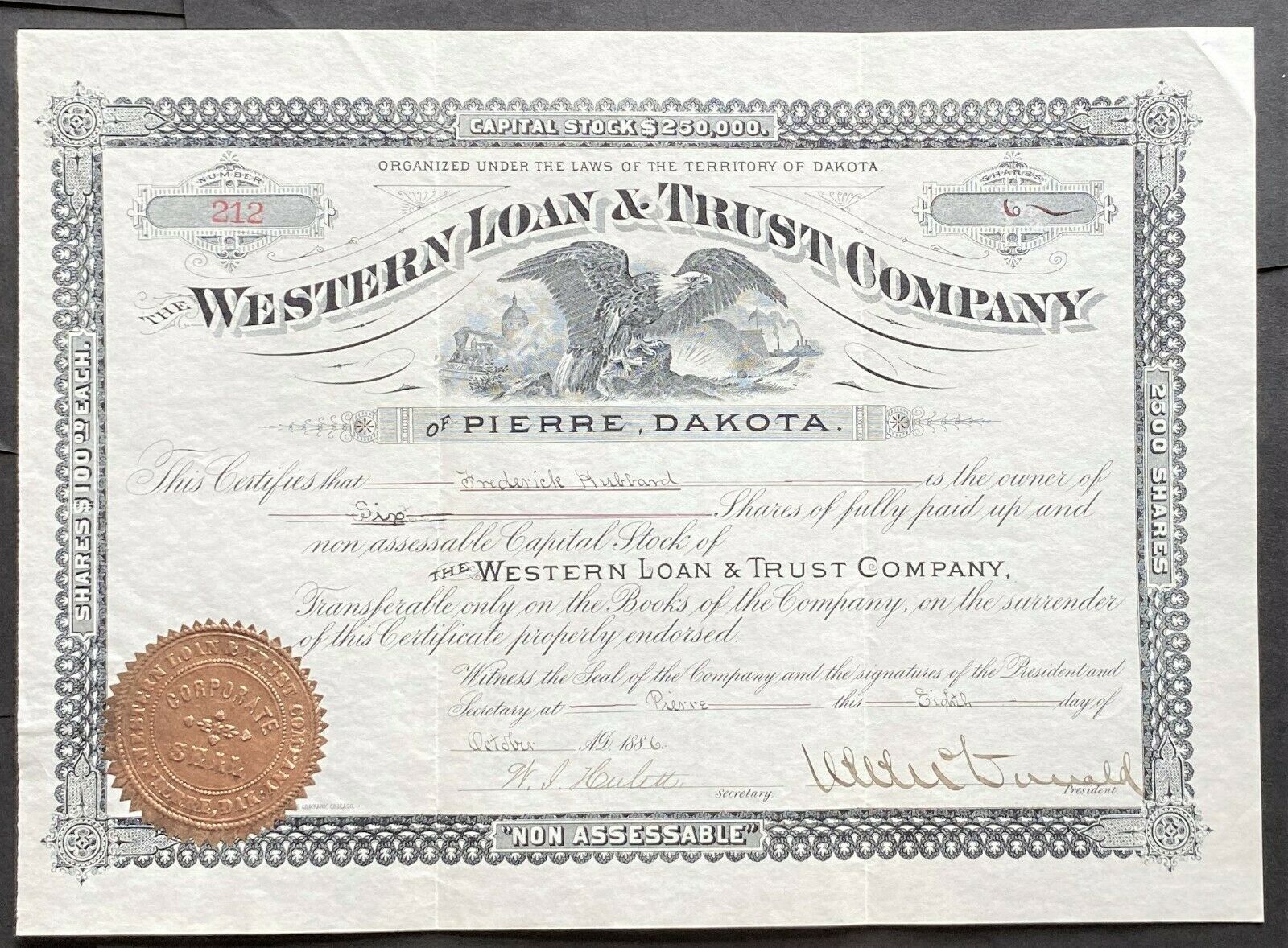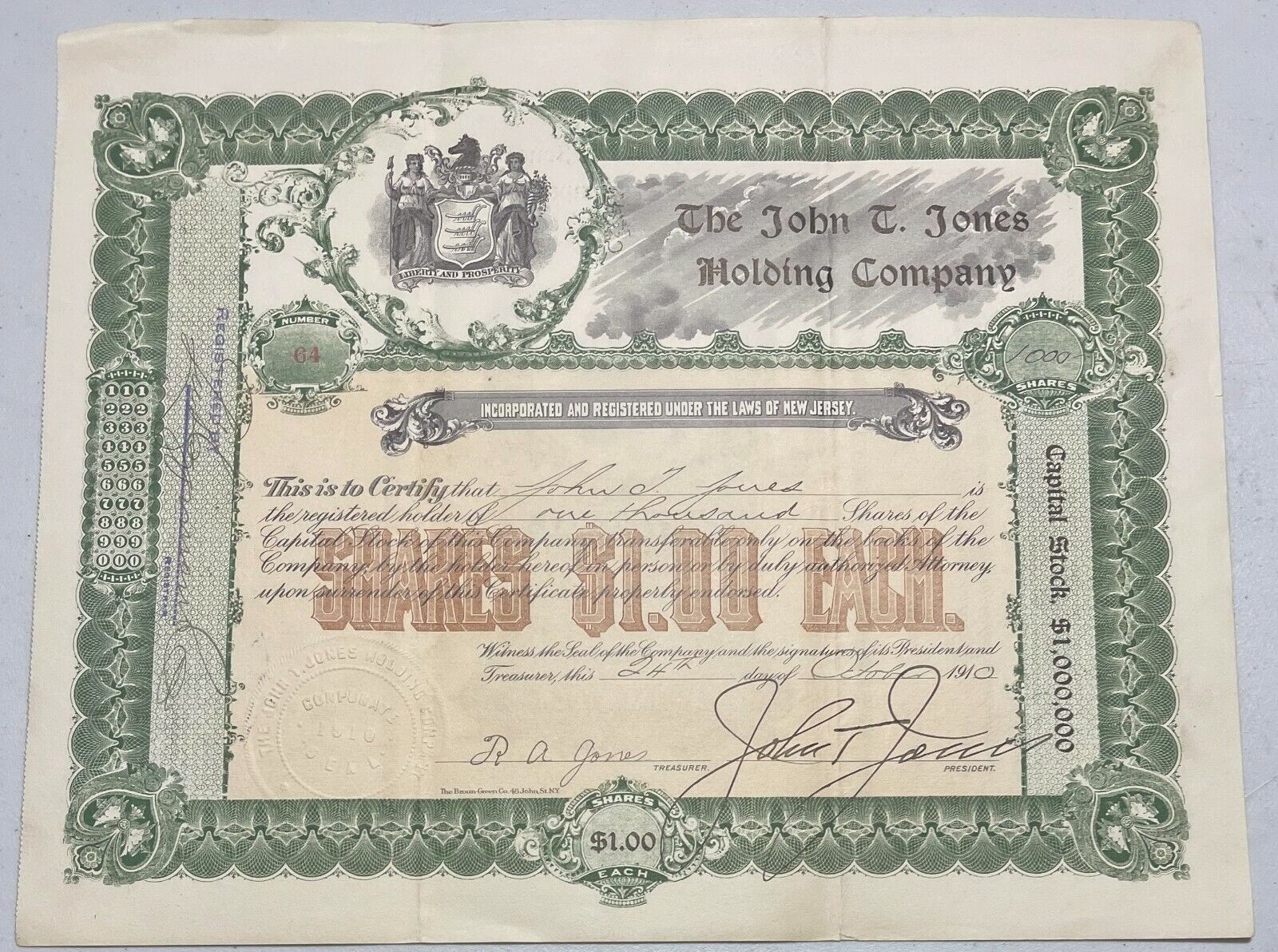-40%
Kirby Lumber Company Stock Certificate
$ 2.11
- Description
- Size Guide
Description
Product DetailsBeautifully engraved antique stock certificate from the Kirby Lumber Company dating back to the early 1900's. This document was printed by the Western Bank Note Company and measures approximately 11 3/4" (w) by 7 3/4" (h).
This certificate features a great vignette of a pair of lumberjacks with a saw ready to fall a large tree in a forest.
Images
The images presented are representative of the piece(s) you will receive. When representative images are presented for one of our offerings, you will receive a certificate in similar condition as the one pictured; however dating, denomination, certificate number and issuance details may vary.
Historical Context
The Kirby Lumber Corporation was organized in 1901. Its founder, John Henry Kirby, was already a well-known lumberman and timber buyer with large interests in Southeast Texas and the growing city of Houston. At its peak, the Kirby Lumber Corporation operated some seventeen sawmills and a similar number of logging camps, cutting the timber from more than 900,000 acres of virgin pineland.
The Kirby company was easily the largest in the entire south. With palatial headquarters in Houston, Kirby presided over a vast empire. He was an important political figure and held offices in both Texas and the federal governments. He was also a leader in organizing the southern Pine Association and frequently spoke for the industry on national questions.
During the Great Depression the company fell into financial difficulty and its control passed into the hands of the Atchison, Topeka and Santa Fe Railroad Company which continues to own and operate it. John Henry Kirby continued as president of the enterprise until his death in 1940.
